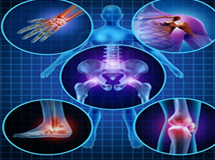Alternative Medicine Course

Alternative medicine course is an educational program designed to teach students about various non-conventional medical practices and therapies. These courses can vary widely in content, duration, and depth, depending on the institution and the specific focus of the program.
It's a structured educational program that provides theoretical knowledge and practical skills related to non-mainstream medical practices and therapies. These courses cover a variety of holistic and natural healing methods aimed at promoting overall health and well-being, often emphasizing preventive care and treating the root cause of illnesses rather than just the symptoms.
Alternative medicine and alternative treatments have gained popularity in sports medicine as athletes seek holistic and non-invasive ways to enhance performance, recover from injuries, and maintain overall well-being. Here are some common alternative medicine practices and treatments used in sports medicine, including massage:
Massage Therapy:
Massage therapy is one of the most widely recognized alternative treatments in sports medicine. It involves manipulating the soft tissues of the body to relieve tension, reduce pain, improve circulation, and promote relaxation. Specifically designed for athletes, focusing on areas of the body that are overused and stressed from repetitive and aggressive movements
Acupuncture:
Acupuncture involves inserting thin needles into specific points on the body to stimulate healing and pain relief. It's believed to balance the body's energy flow (Qi) and is used to treat various conditions such as muscle pain, joint pain, and inflammation.
Chiropractic Care:
Chiropractic care focuses on diagnosing and treating musculoskeletal disorders, particularly those related to the spine. Chiropractors use spinal adjustments and manipulations to improve alignment, relieve pain, and enhance the body's ability to heal itself.
Herbal Medicine:
Herbal medicine uses plant-based substances to support healing and wellness. Athletes may use herbal supplements to reduce inflammation, enhance recovery, and boost overall health. Commonly used herbs include turmeric (for its anti-inflammatory properties), arnica (for bruising and muscle soreness), and ginseng (for energy and stamina).
Cupping Therapy:
Cupping therapy involves placing cups on the skin to create suction. This technique is believed to enhance blood flow, reduce muscle tension, and promote healing. It gained widespread attention after being used by Olympic athletes like Michael Phelps.
Nutritional Therapy:
Proper nutrition is crucial for athletic performance and recovery. Nutritional therapy involves creating personalized diet plans that provide the necessary nutrients for optimal health and performance. This can include dietary supplements, vitamins, and minerals tailored to the athlete's needs.
Homeopathy:
Homeopathy is based on the principle of "like cures like," using highly diluted substances to stimulate the body's self-healing processes. Homeopathic remedies are used to treat various ailments, including muscle strains, sprains, and joint pain.
Aromatherapy:
Aromatherapy uses essential oils extracted from plants to promote physical and emotional well-being. Athletes may use essential oils like lavender (for relaxation and stress relief), eucalyptus (for muscle pain), and peppermint (for energy and focus).
Ayurveda:
Principles of the ancient Indian system of medicine.
Yoga and Tai Chi:
These practices combine physical postures, breathing techniques, and meditation to improve flexibility, strength, balance, and mental focus. They are beneficial for injury prevention, stress reduction, and overall physical conditioning.
Hydrotherapy:
Hydrotherapy involves using water for pain relief and treatment. Techniques such as contrast baths (alternating hot and cold water immersion), aquatic exercises, and whirlpool baths can help reduce muscle soreness, improve circulation, and speed up recovery.




Benefits and Considerations:
Alternative treatments can provide natural, non-invasive options for pain relief, stress reduction, and overall wellness. They can complement conventional medical treatments and contribute to holistic care.
It's important to consult with healthcare professionals before starting any alternative treatment, especially if you have existing health conditions or are taking medications. Ensuring treatments are administered by qualified practitioners is crucial for safety and effectiveness. Integrating alternative medicine into sports medicine offers athletes a range of tools to enhance performance, prevent injuries, and promote recovery in a holistic manner.
Types of Programs:
Career Opportunities:
Graduates of alternative medicine courses can pursue various career paths, including:
An alternative medicine course provides a comprehensive education in holistic health practices, equipping students with the knowledge and skills to promote wellness through natural and non-invasive methods.



